Behaviour
All chickens should be allowed to express natural behaviours. Behaviour refers to the way that an animal acts. An important type of behaviour that an animal expresses are those that are instinctive (what they would typically do in the wild). Enough space, proper shelter and housing, as well as company of the animal's own kind, encourages the expression of natural behaviours.
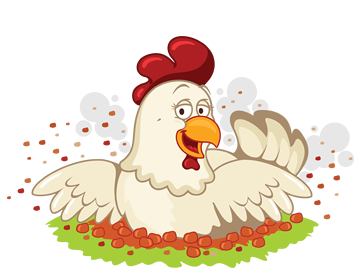
Did you know that there is a special law protecting animals?
This law is called the Animal Welfare Act. The Animal Welfare Act outlines how people must take care of and act towards animals in New Zealand. The Ministry for Primary Industries (MPI), the Police and SPCA work together to make sure people in New Zealand follow these laws.
Under the Animal Welfare Act, all animal guardians (owners) are responsible for making sure the welfare needs of animals in their care are met. Learning about the Five Domains helps us to understand these welfare needs and how we can make sure we provide these. One of the Five Domains is Behaviour. In this section you will learn about this domain and how you can make sure your chickens receive the exercise and enrichment they need to express their natural behaviours.





















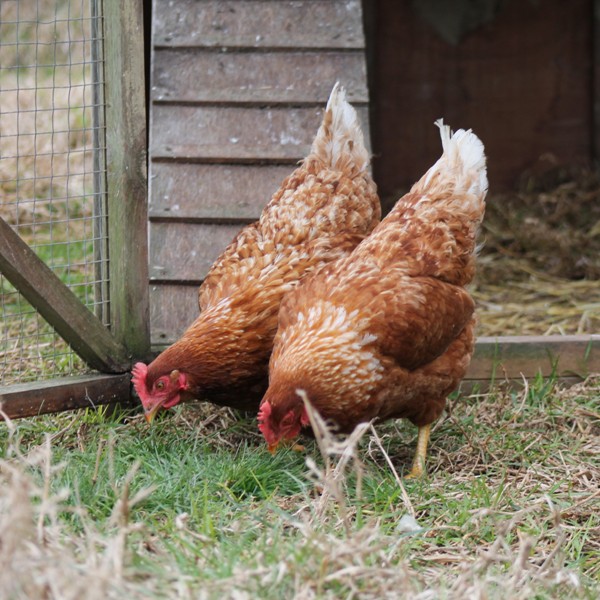
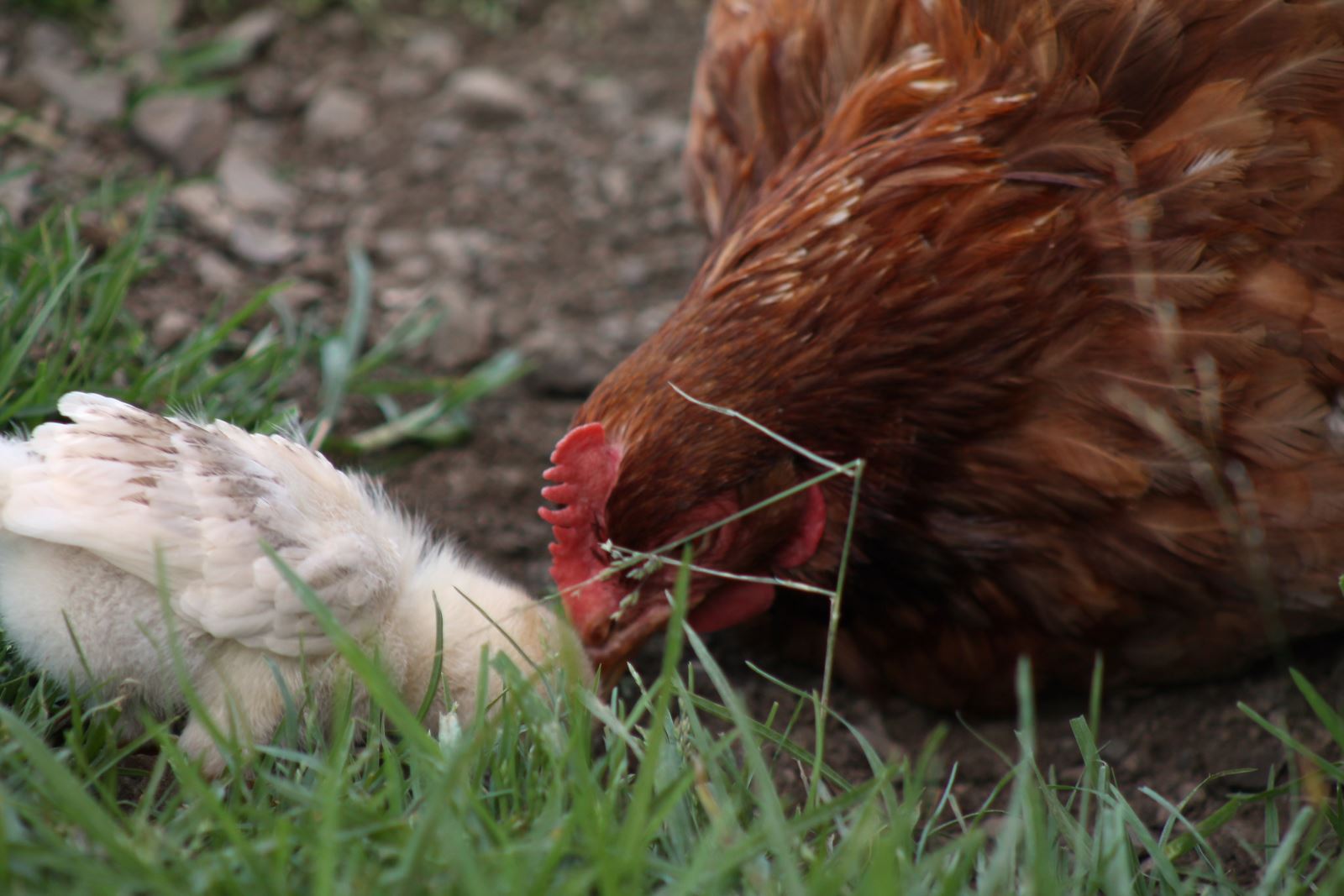
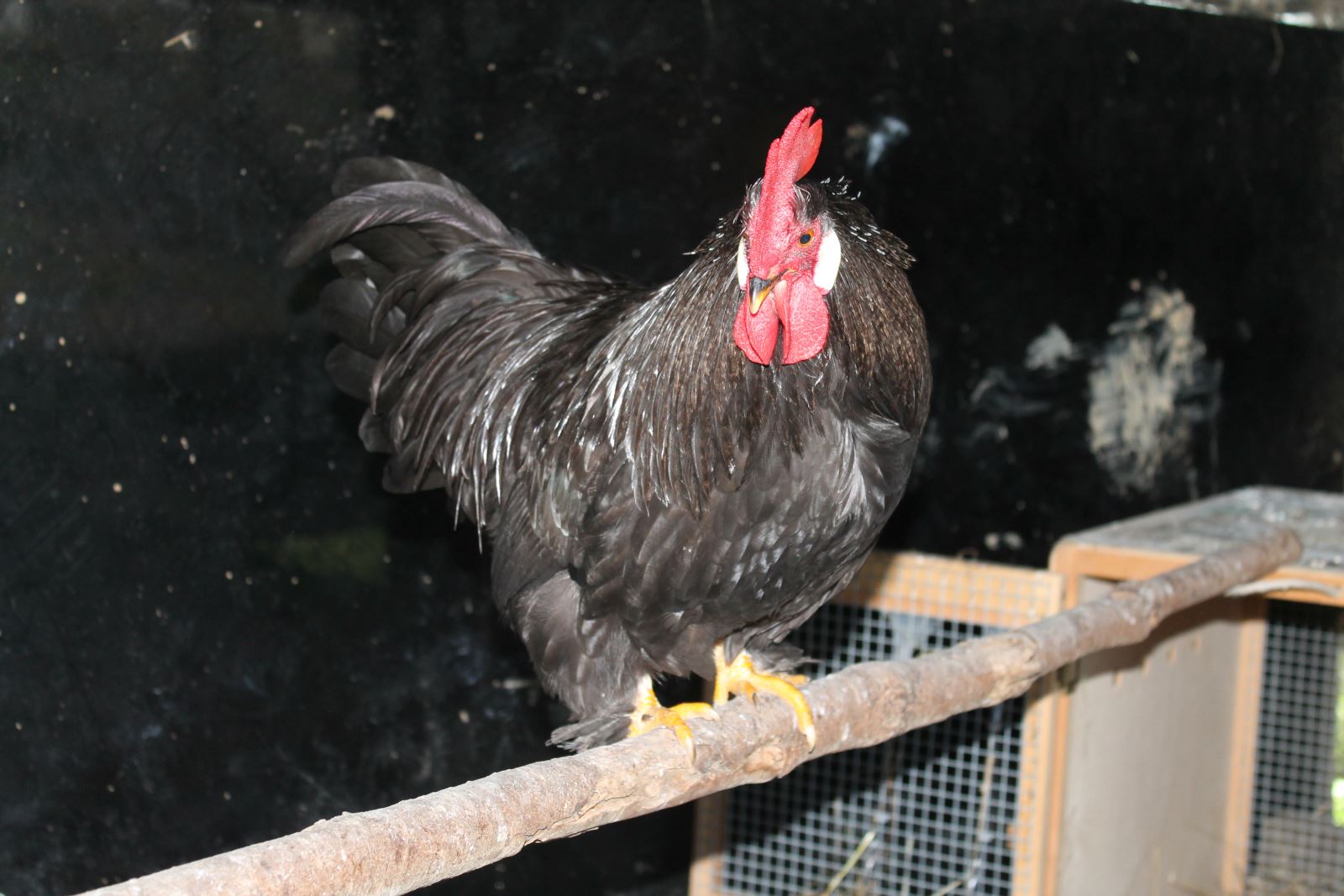
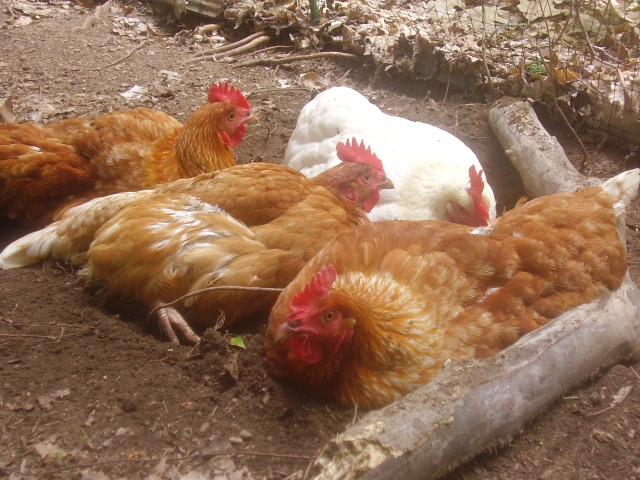 Different types of birds take baths in different ways - some birds like water, others use sand or dust. The way a chicken cleans itself is to have a dust bath. This is where they roll around in dust or soil as a way to clean themselves.
Different types of birds take baths in different ways - some birds like water, others use sand or dust. The way a chicken cleans itself is to have a dust bath. This is where they roll around in dust or soil as a way to clean themselves.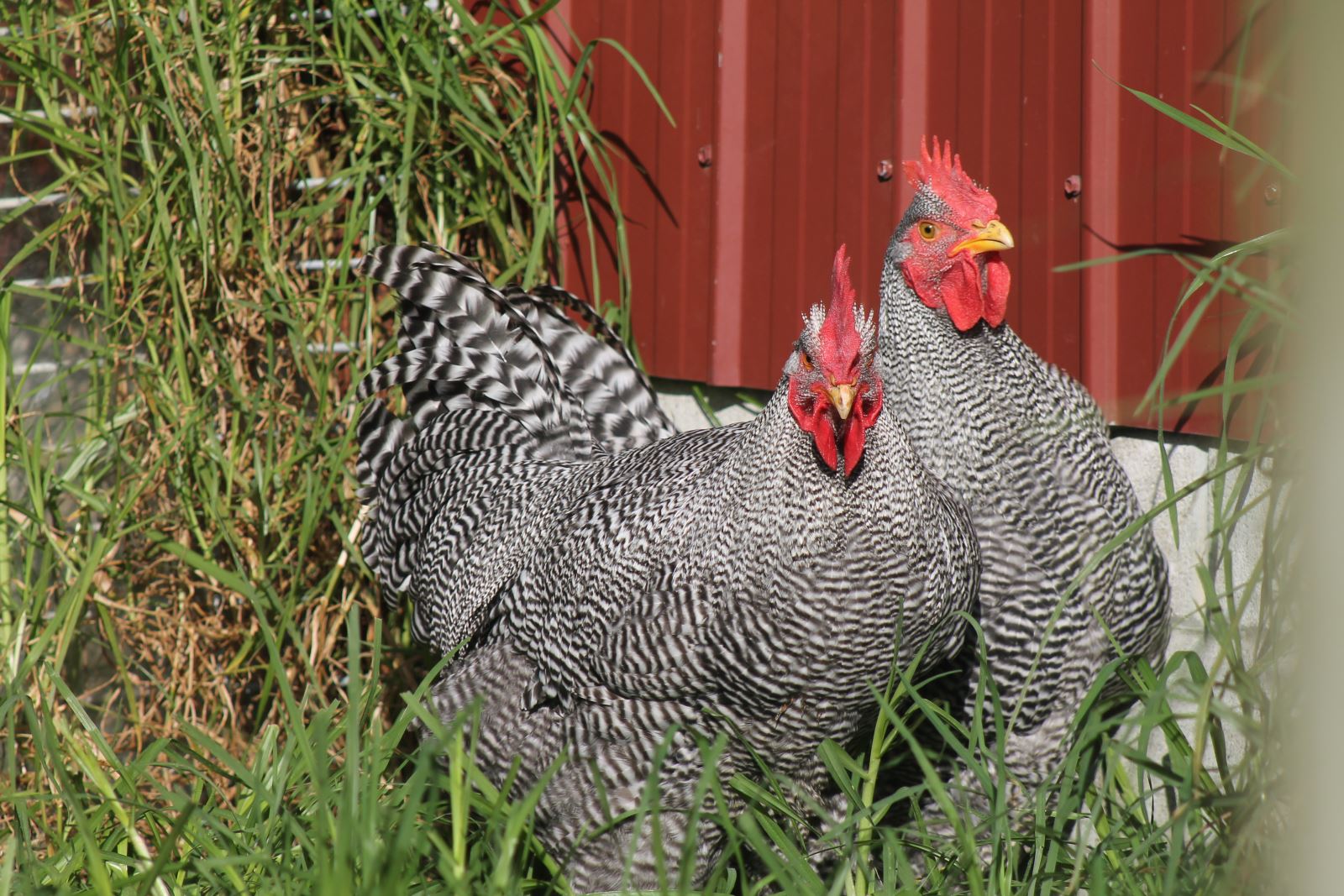
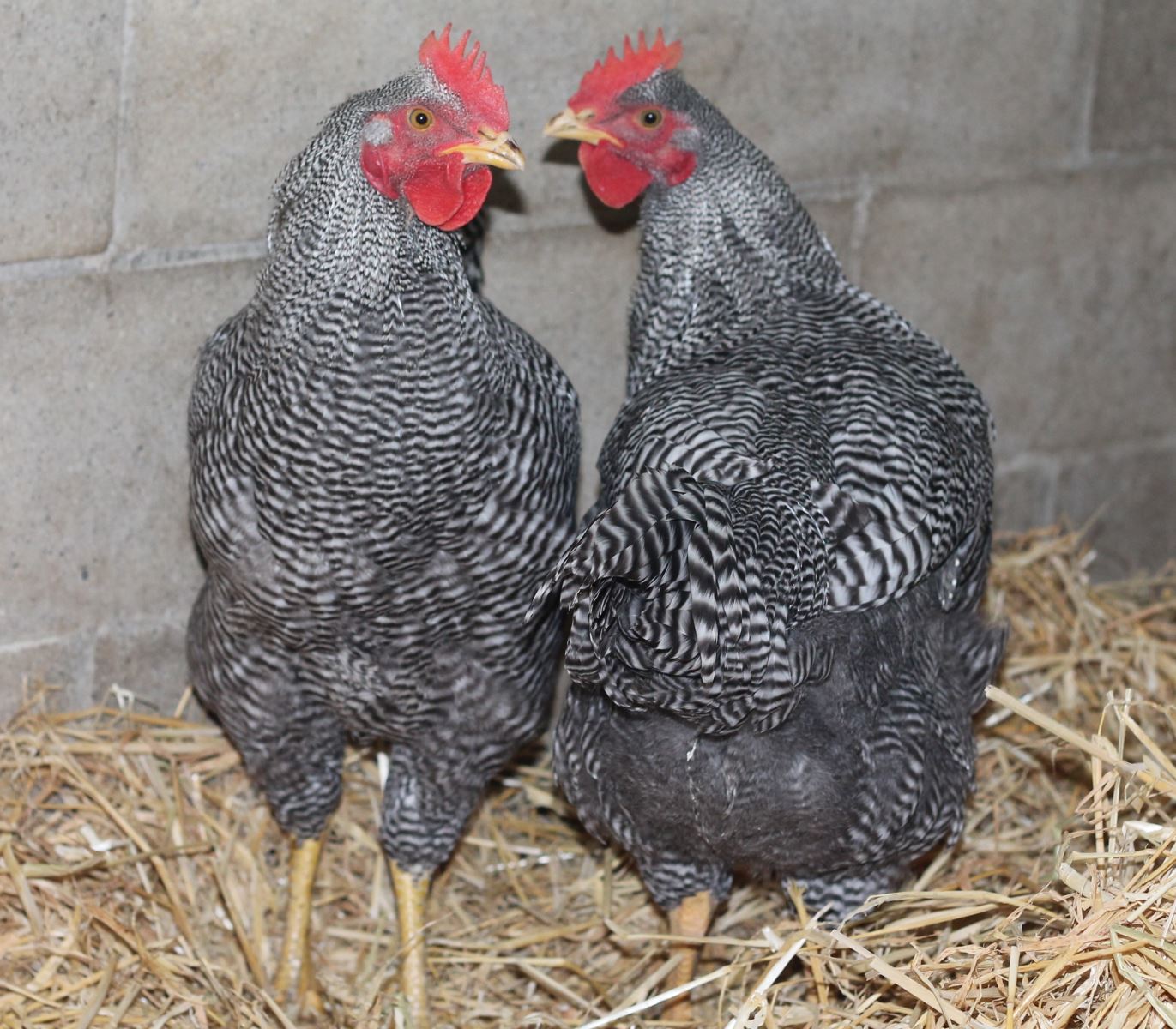
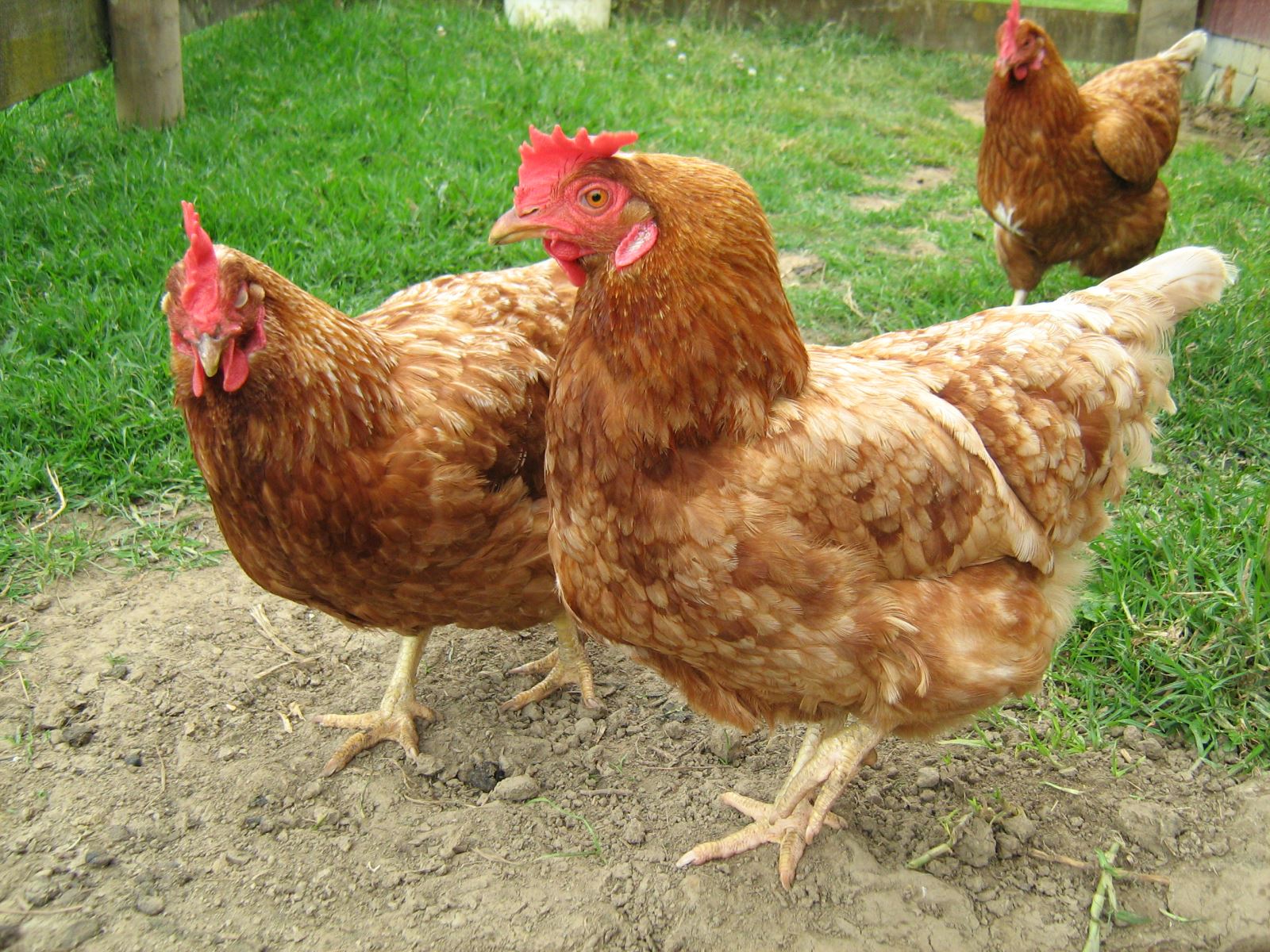 It is important to introduce chickens correctly if you want to avoid this.
It is important to introduce chickens correctly if you want to avoid this.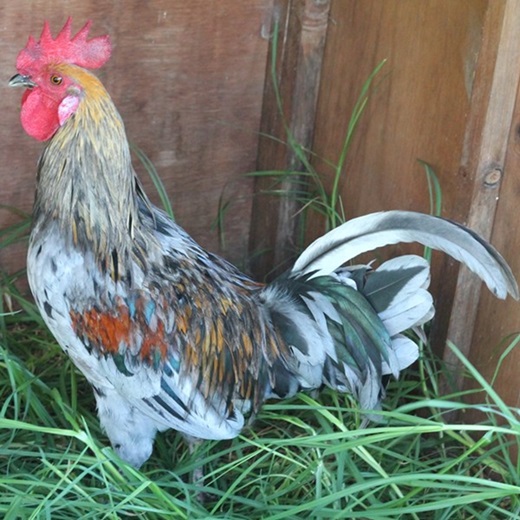 Thinking about getting a rooster? Hens will lay eggs without a rooster, but if you want to breed from your hens (hatch baby chickens), then you will need a rooster. There are a few extra things to consider before getting a rooster though.
Thinking about getting a rooster? Hens will lay eggs without a rooster, but if you want to breed from your hens (hatch baby chickens), then you will need a rooster. There are a few extra things to consider before getting a rooster though.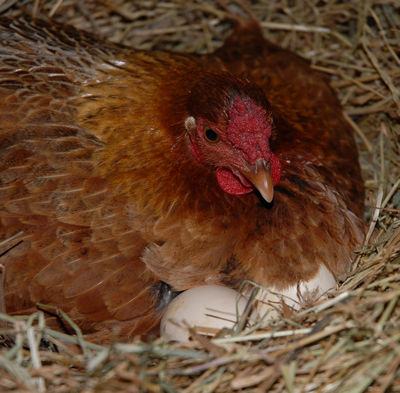 Hens can sometimes produce over 300 eggs within their lifetime, so it is important to provide a safe spot for them to lay their eggs. By providing nest boxes, you are giving your hen a nice, cosy area where she can lay her eggs in private. Different hens may prefer different types of nest box.
Hens can sometimes produce over 300 eggs within their lifetime, so it is important to provide a safe spot for them to lay their eggs. By providing nest boxes, you are giving your hen a nice, cosy area where she can lay her eggs in private. Different hens may prefer different types of nest box..jpg) Chickens are extremely intelligent and are happiest when they have things to do. A stimulating environment helps prevent your chickens from getting bored or pecking out their feathers. Introducing new things to your chickens’ environment will make their day more interesting.
Chickens are extremely intelligent and are happiest when they have things to do. A stimulating environment helps prevent your chickens from getting bored or pecking out their feathers. Introducing new things to your chickens’ environment will make their day more interesting.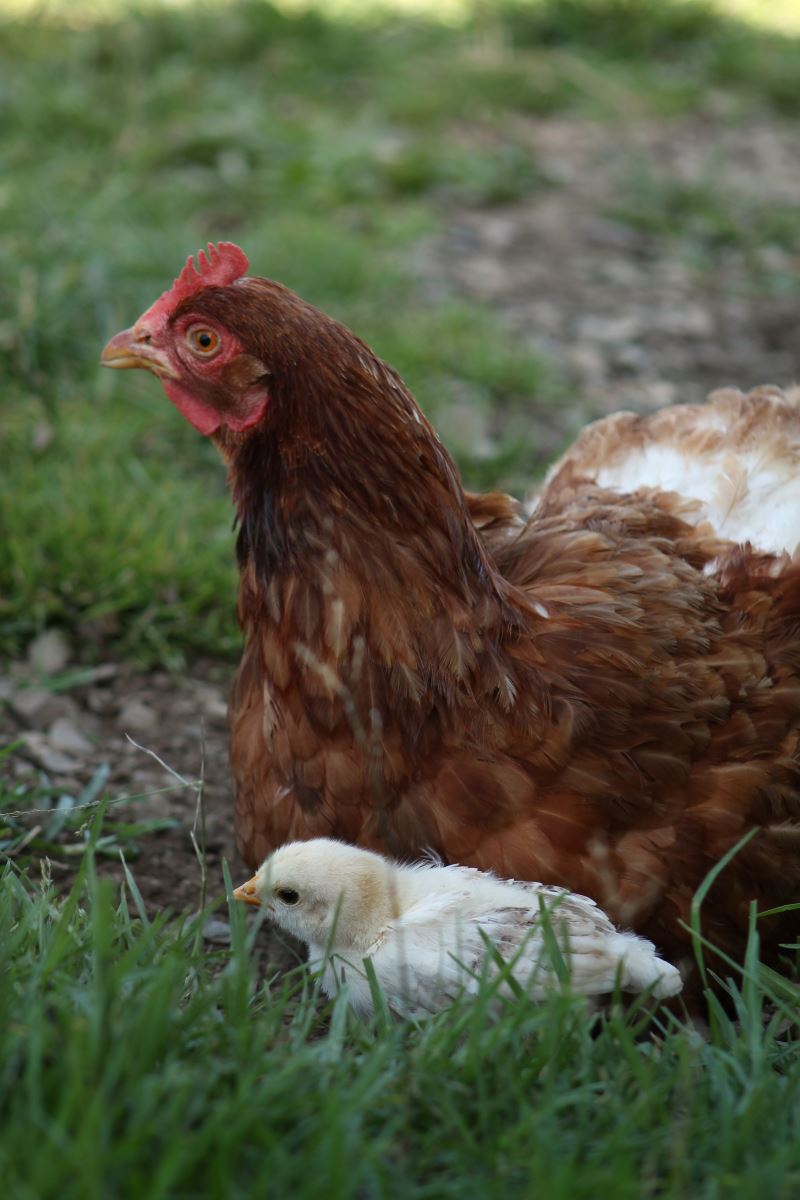 Make sure any time that you change your chickens’ environment, it remains safe for your chickens. Check with an adult that there’s nothing that could harm your chickens.
Make sure any time that you change your chickens’ environment, it remains safe for your chickens. Check with an adult that there’s nothing that could harm your chickens.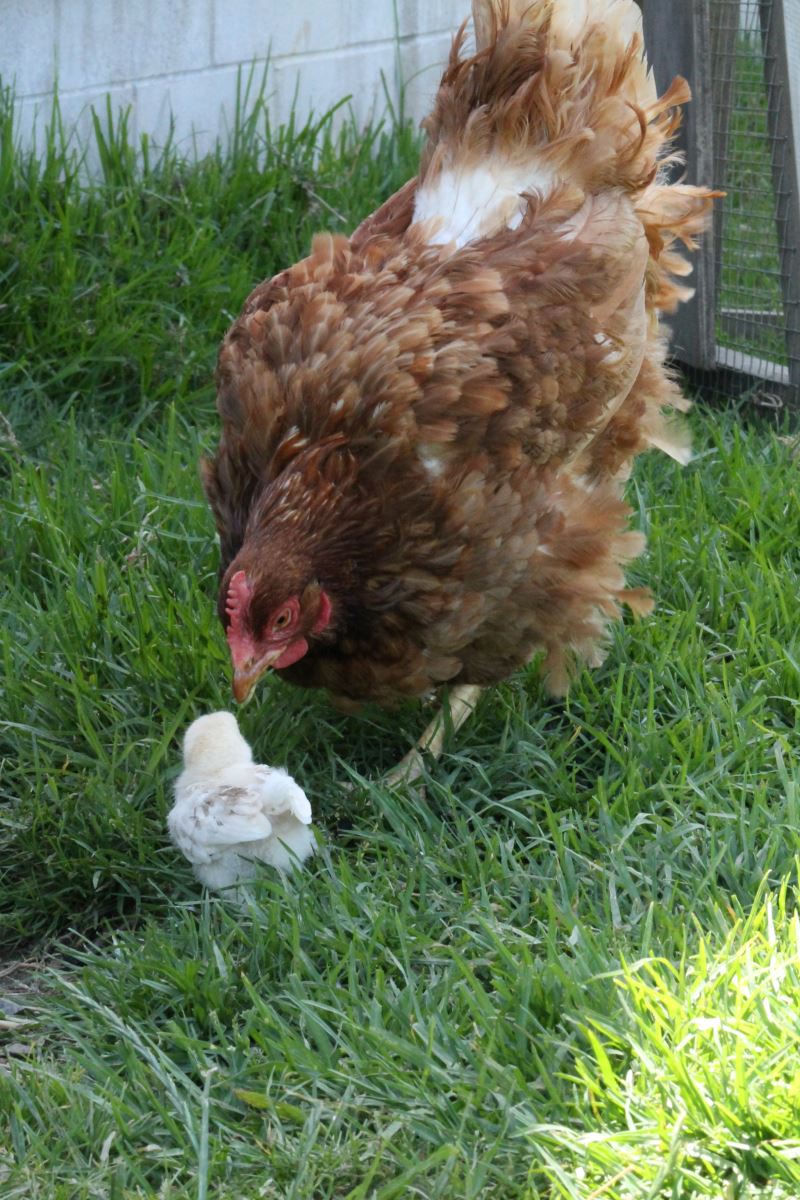 The way a chicken behaves will depend on her age, personality and past experiences.
The way a chicken behaves will depend on her age, personality and past experiences.








